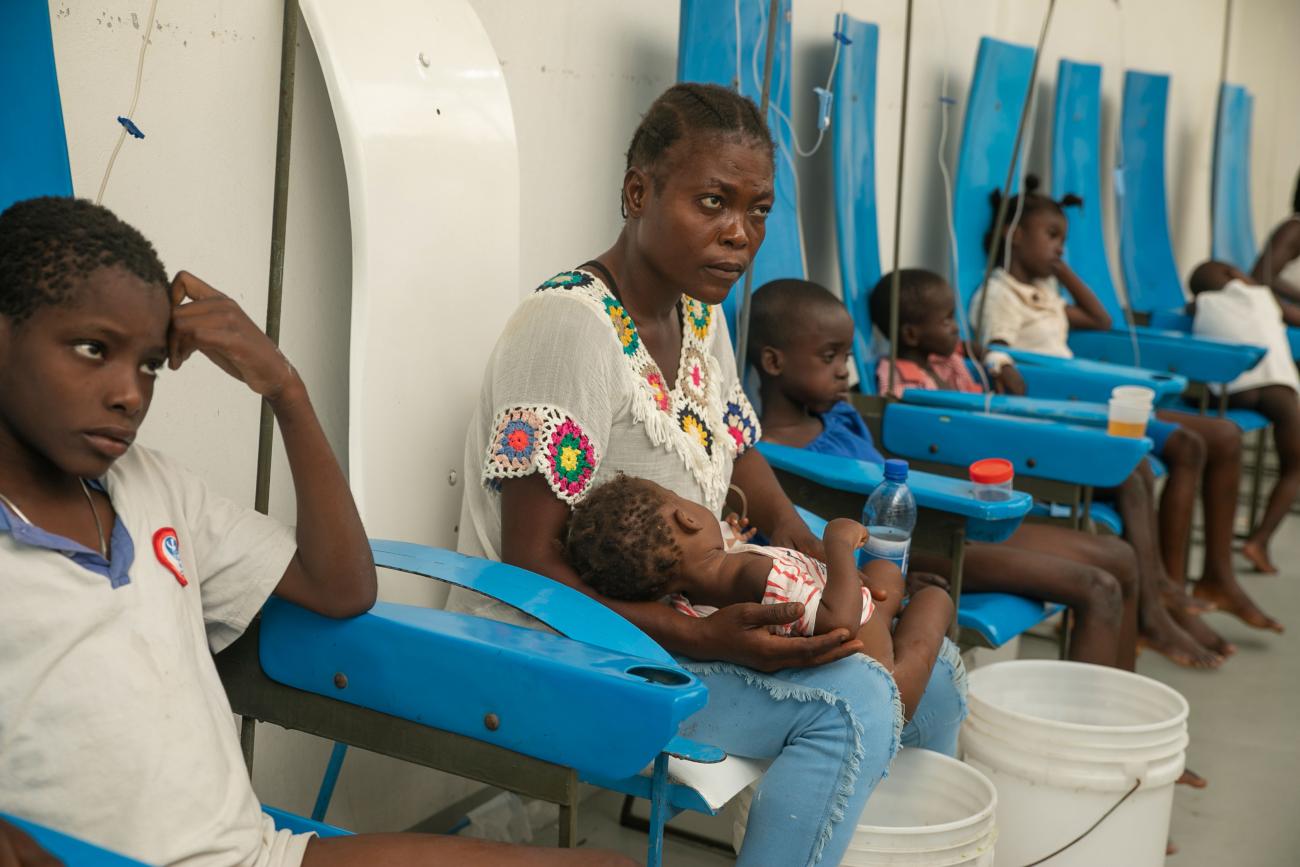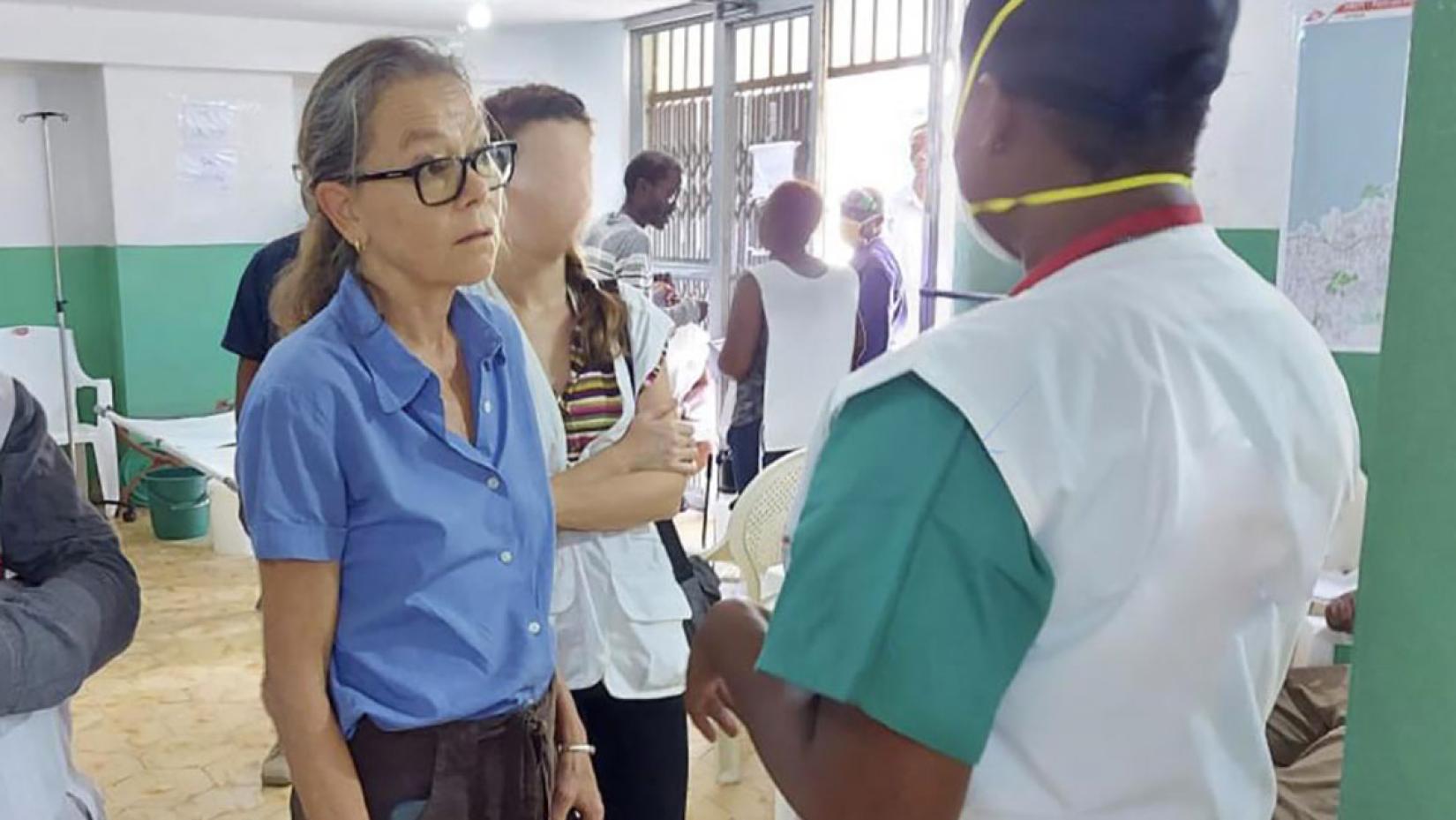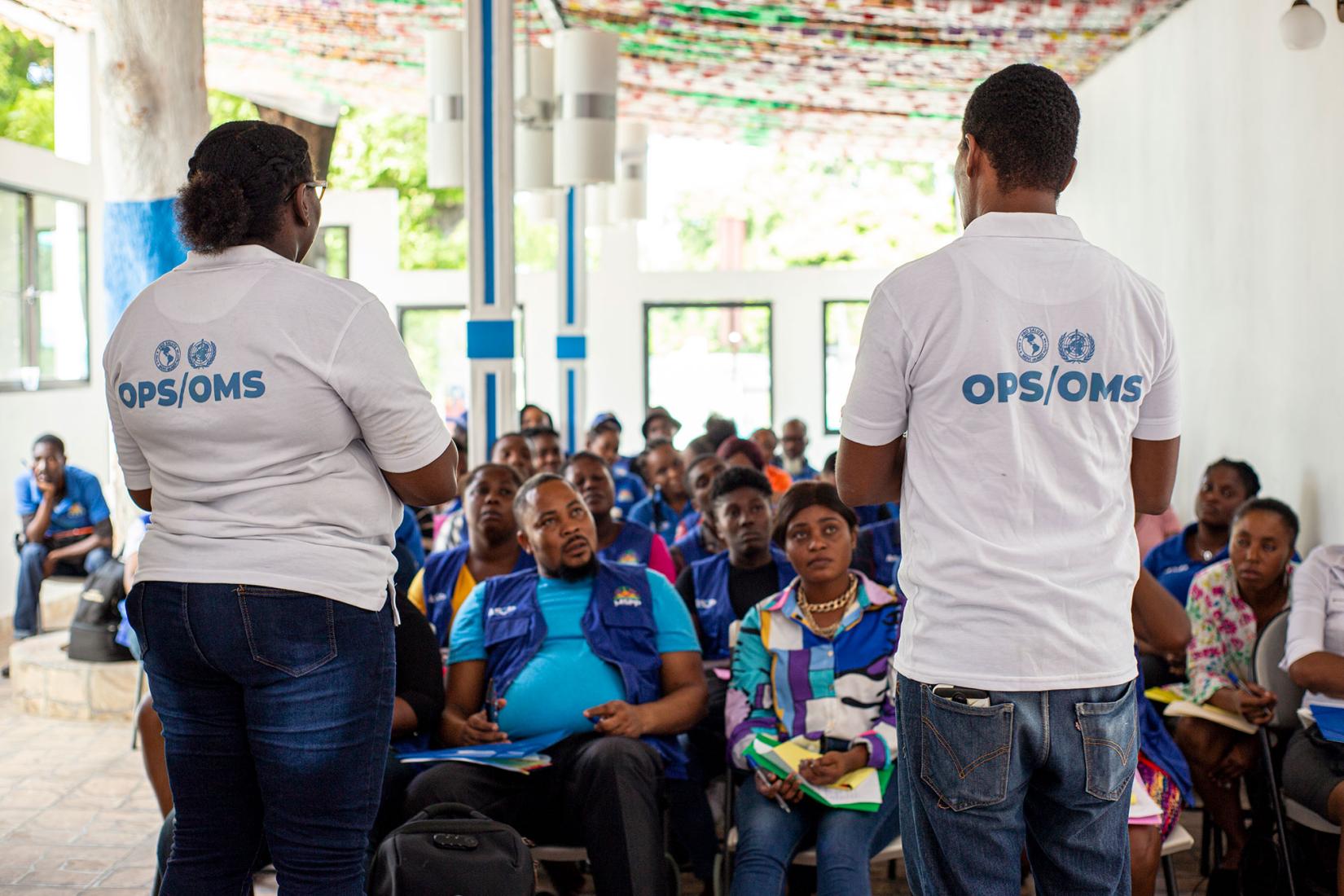Haitians come together to tackle the cholera crisis: A UN Resident Coordinator Blog

Port-au-Prince
Haitians are coming together to tackle the recent outbreak of cholera in the country, the UN Resident and Humanitarian Coordinator in Haiti has heard from health care workers treating patients for the disease. Ulrika Richardson, the most senior UN humanitarian official in Haiti visited a number of cholera treatment centres in the country’s capital, Port-au-Prince, where she met medical staff and patients.
“I have visited several cholera treatment centres in the most affected neighborhoods of Port-au-Prince and saw heartbreaking scenes; children who were so malnourished, it was difficult to insert a drip into their arms or legs; adults who were clearly very ill.
What immediately struck me was the intense smell of chlorine disinfectant, which is used to sterilize the immediate environment, clearly a sign that the facility is well run by health professionals who know how to prevent and treat the disease. I saw staff continually scrubbing the floor and surfaces to ensure that the cholera bacteria could not spread further.

I was deeply impressed and moved by the commitment and dedication of health workers. I have met many inspirational people who have embodied this professionalism and who have also demonstrated humanity and huge empathy with patients under treatment. Many have told me that Haitians are coming together to get through this difficult time.
Sharp increase in cases
Up until a few days ago, the increase of cholera cases had been gradual but now we are seeing a worryingly sharp increase, so the situation has become more challenging.
It is important to remember that although cholera can be deadly, it is preventable and treatable. Speed is of essence to contain an outbreak and save lives. I believe the public health response from the Haitian authorities, local and international NGOs with the support of the UN was immediate and decisive, despite shortages of clean water and fuel which is needed to provide power to health facilities and enable staff to get to work.
Cholera treatment centres were quickly established to care for the sick. Haitian people have lived through cholera before, so there is knowhow and experience that is extremely valuable currently to prevent the outbreak from getting out of hand.
The public health messages by the Ministry of Health on radio and via text messages, which the UN supported, have underlined the importance of preventative measures like handwashing and disinfecting.
The inability of people to move around freely especially in the capital Port-au-Prince because of the prevailing security situation and lack of fuel may also have played a part in containing the spread, although this insecurity has also complicated the cholera response.
Haitian-led response

From day one of the outbreak, the UN in Haiti, with its national and international partners, has worked alongside the Ministry of Health.
The UN’s Pan American Health Organization (PAHO) has supported our partners to open 13 cholera treatment centres. Oral rehydration points are also being established, particularly in hard-to-reach communities to treat milder cases and refer others to in-patient facilities, while assistance has been provided to train 300 community health workers. These workers are crucial as there are so many communities that are isolated due to armed gang violence.
UNICEF and the UN’s International Organization for Migration (IOM) are supporting the Haitian authorities and partner organizations with chlorine, water- purifying tablets, hygiene kits and medical supplies such as oral rehydration salts. UNICEF, through its partners is also deploying mobile health clinics in Cité Soleil, the capital’s most affected neighbourhood.
The humanitarian situation in Haiti is desperate for many and cholera is just one pressing challenge. Increased hunger faced by too many Haitians is another great concern that needs to be addressed. The World Food Programme has resumed its distribution of food inside Cité Soleil reaching over 5500 vulnerable people since mid-October.
Coordinator and troubleshooter
As the UN Resident and Humanitarian Coordinator in Haiti, my role is to facilitate the UN’s response in a way to maximise our impact and ensure all our knowledge and expertise effectively supports the Ministry of Health’s cholera prevention and treatment strategy.
This means making linkages, whether here in Haiti with national entities or with different areas of the UN, so that our combined effort is greater than the sum of its parts.
In fact, I have been impressed not only by the quick mobilization of agencies and colleagues on the ground but also by the attention and action of the most senior leaders across the United Nations.
A can-do attitude is essential; when there are bottlenecks, for example a lack of fuel for treatment centres, I am called to help troubleshoot the problem.
Ultimately, our shared goal is to work towards a cholera-free Haiti and since the latest outbreak, I have witnessed first-hand the UN’s commitment to the people of Haiti.
Since its creation, the United Nations and Haiti have shared a strong bond. Now is once again the time for the UN and Haitians to come together to tackle this crisis so that Haiti and its people emerge stronger and more unified as the country continues on the path towards stability, equality and prosperity.
The UN Resident Coordinator
|








